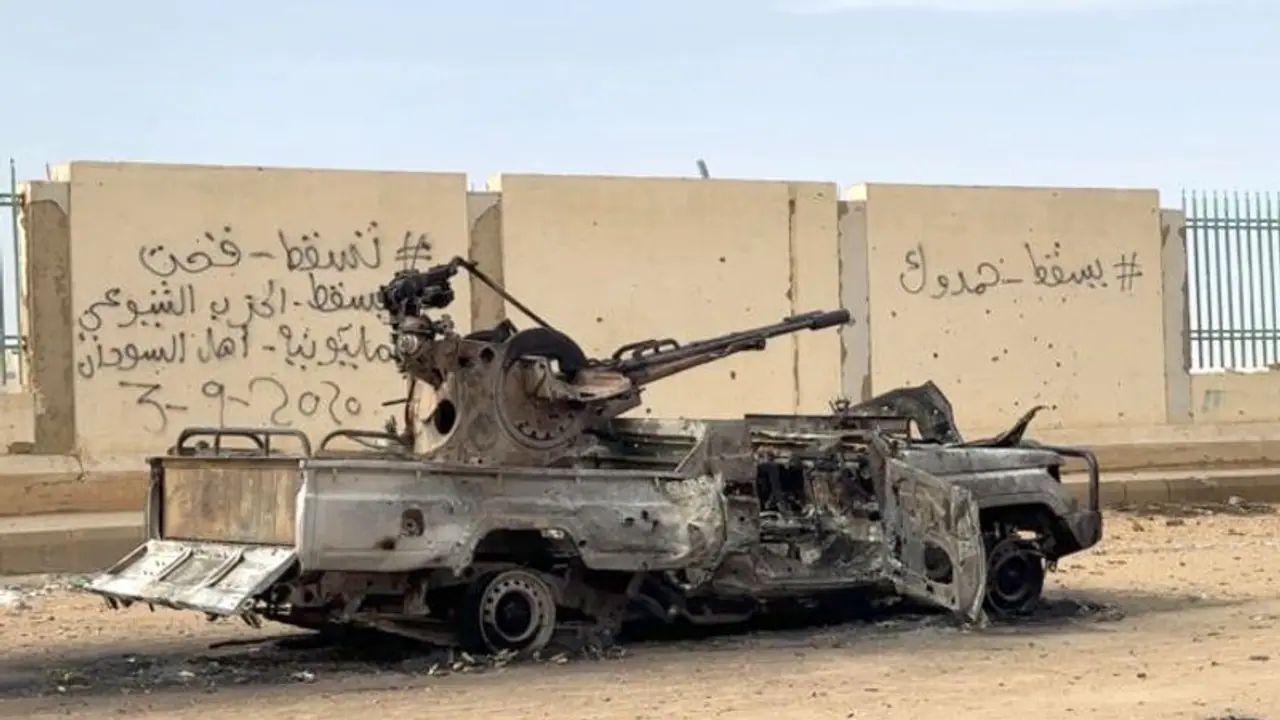Fighting had erupted in Sudan last week between the army and a powerful militia group, the Rapid Support Force (RSF), over time to transition from a military dictatorship to a civilian democracy and subsuming the RSF into the army. Girish Linganna reports
Evacuation of Indians continues from violence-hit Sudan. Indians were among the 388 people from 28 countries evacuated by France late Sunday night on two aircraft. On Sunday, Saudi Arabia too informed that it, too, had evacuated a few Indian nationals.

India has positioned two heavy-lift military transport aircraft in the Saudi Arabian city of Jeddah and a naval ship at a key Sudanese port as part of its contingency plans to evacuate Indians stranded there. This after Prime Minister Narendra Modi held a high-level meeting on Friday, directing officials to initiate the evacuation. The meeting was attended by National Security Adviser Ajit Doval and Ambassador to Sudan BS Mubarak.
Fighting erupted in Sudan last week between the army and a powerful militia group, the Rapid Support Force (RSF), over the time to transition from a military dictatorship to a civilian democracy and subsuming the RSF into the army. The cashes have claimed over 400 lives and injured many others.
EMBASSY IN FIGHTING ZONE
The Indian Embassy in Sudan is open and working, but houses no staff there as the building is close to the airport in Khartoum, which has seen intense battles between the forces loyal to the Sudanese Army chief Abdel Fattah al-Burhan and his deputy, Mohamed Hamdan Daglo, who heads the RSF, according to the government.
THE EYE OF THE STORM
Everything centres on infighting between two hostile groups -- the Sudanese army and the RSF. Following a 2021 coup, Sudan has been under the military rule of de facto leader General Abdel-Fattah Burhan, the mastermind of the coup.
This transitional government was established after long-time dictator Omar al-Bashir was ousted two years ago.
The RSF is led by General Mohammed Hamdan Dagalo, aka Hemedti, who has worked in tandem with the Sudanese army to help the army stay in the saddle.
After Bashir was removed, plans were chalked out for a change of political course that was to have heralded elections by end-2023. Burhan promised a gradual -- but irrevocable -- transition to civilian rule. But it seems in retrospect that neither Burhan nor Dagalo had plans to relinquish power.
An inevitable violent power struggle has been on since April 15, 2023. Since then, the RSF and the Sudanese forces have pitched gun battles in the capital Khartoum and elsewhere in the country. Over the course of the past, the violence has intensified.
At the core of the recent power, struggle has been the disagreement over how to subsume the RSF paramilitary forces into the Sudanese armed forces. Tensions flared up after the RSF began sending members across the country, and to Khartoum, without the military's consent.
But the violence has had other root causes since the RSF has been tightening its grip on Sudan's economic assets -- especially its gold mines. The recent events in Sudan do not bode well for the country's stability or the prospects for a transition to democratic governance.
STRONGMEN IN A FIGHT
Dagalo assumed power within the RSF in the early-2000s, leading the so-called Janjaweed militia responsible for human rights abuses in the Darfur region.
Even as then Sudanese President Bashir perpetrated nameless, faceless violence against the people of Darfur and was later charged with 'crimes against humanity' by the International Criminal Court (ICC), the Janjaweed, too, were held accountable by the ICC for genocide. As they did so, Dagalo advanced.
As the RSF leader, Dagalo was charged with overseeing a bloody crackdown on pro-democracy activists, where 120 protesters were massacred in 2019.
Burhan’s actions have also brought the military leader severe criticism from human rights groups. As head of the ruling army and de facto head of government, he has overseen a crackdown on pro-democracy activists for the past two years.
Both Burhan and Dagalo could be interpreted as obstacles to Sudan’s transition to a civilian democracy. But it is primarily a struggle for personal power.
To use an African proverb: "When elephants fight, the grass is trampled upon."
